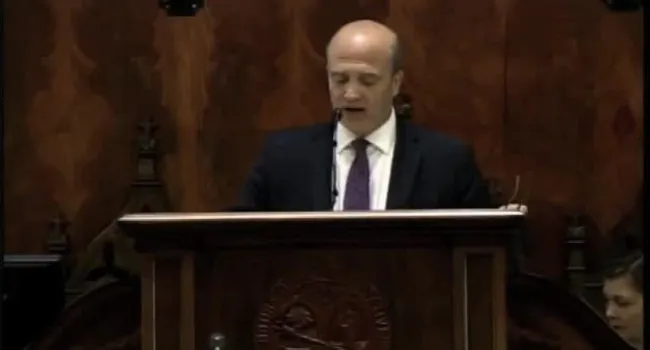Kaltura
Molly Craig from the Hood Law Firm, LLC in Charleston, S.C. speaks at the 2015 James Otis Lecture about "Women Making History."
The women she highlighted were:
- Charlotte E. Ray, first African-American female lawyer in the United States
- Sandra Day O'Connor, first woman to be appointed to the US Supreme Court
- Jean Toal, first female Chief Justice for the S.C. Supreme Court
Standards
- 8.5.E Utilize a variety of primary and secondary sources to analyze multiple perspectives on the cultural changes in South Carolina and the U.S.
- This indicator was developed to encourage inquiry into civic engagement, such as military service, public demonstrations, and political activism, to shape the identity of modern South Carolina. This indicator was also written to encourage inquiry into South Carolinians’ use of the court system and legislation to affect South Carolina’s post-World War II identity.
- This indicator was developed to encourage inquiry into thematic continuities and changes into how marginalized groups sought and won legal rights. Inquiry into the leadership, methods, and outcomes of modern equal rights movements are supported by this indicator.
- This indicator was developed to encourage inquiry into the crucial events and conflicts that led to the ratification of the United States Constitution. This indicator also encourages inquiry into the major debates and compromises at the Constitutional Convention and how economic, political, and social goals impacted the formation of the new government.



